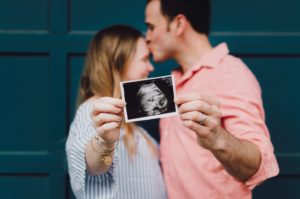
Many factors have been identified that alter the process of human microbiota development in early life. The prenatal, antenatal and postnatal period have been found to be the most developmentally sensitive times. The importance is that microbiota imbalance during these periods could lead to immune dysregulation with the implication to later life health. On the other hand, these developmentally sensitive periods may also offer opportunities to modify microbiota development to enhance healthier and more robust microbiota communities, and therefore potentially prevent future disease. Standard hospital intervention during labour and delivery such as antibiotics administration to the mother and baby, separation of mother and baby, and early infant bathing could reduce the chance of early microbiota transmission to the newborn infant. The hospital environment provides both an antiseptic environment for labour and delivery, as well as possible exposure to antibiotic resistant bacteria. To investigate the neonatal microbiota development in the absence of standard hospital intervention, a group of researchers conducted a prospective cohort study on 35 vaginally-delivered infants, and their 34 mothers to compare the gut microbiota from vaginally delivered babies born at home (14 babies) with babies born at hospital (21 babies). Study investigators found that the maternal gut microbiota is significantly different between those delivered at home and the hospital without antibiotic exposure. Additionally, hospitalization was associated with alterations in the neonatal microbiota structure during the first month of life:
In conclusion, this study showed that home versus hospital birth of exclusively breastfed, vaginally delivered babies is associated with the difference in gut microbiota composition. Additionally, increased capacity for hospital-delivered fecal microbiota associated products were found to induce pro-inflammatory epithelial gene expression.
Reference:
Combellick, J. L., Shin, H., Shin, D., Cai, Y., Hagan, H., Lacher, C., Lin, D. L., McCauley, K., Lynch, S. V., & Dominguez-Bello, M. G. (2018). Differences in the fecal microbiota of neonates born at home or in the hospital. Scientific reports, 8(1), 15660. Click here.


This website and the information it contains is not intended as a substitute for professional consultation with a qualified practitioner.
© MothersBabies Ltd. View our Terms of Use & Privacy Policy
Search MothersBabies
Looking for something in particular? Find it here using our search query function. Simply type in your keyword and click the icon.
Recent Articles






Join Us